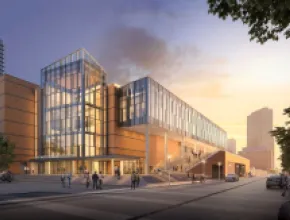While dealt the hardest blow during the economic meltdown, luxury hotels are not down for the count. For an increasing number of buyers, the unprecedented value now offered by top properties is just too good to ignore.
While perception issues remain a concern, luxury hoteliers report that perception is no longer dictating site choices the way it did a year or 18 months ago when meetings booked at upscale properties were being canceled or shifted to lower-profile hotels. Increasingly, they say, both corporate and association groups are more than willing to indulge champagne tastes on a beer budget.
Data from Smith Travel Research (STR), a company in Hendersonville, Tenn., that tracks hotel trends, supports these assertions. According to a recent STR report, the top tier of hotels will fare better than any other segment in terms of both occupancy and room rate in 2010. It also states that U.S. luxury hotels have already experienced several months of demand growth between 5 and 8 percent, much of it coming from an uptick in corporate travel.
"If you look at the [luxury] segment over the last few months, there has been substantial recovery at the high end. It had the best demand performance in 2009," says STR President Mark Lammano. "It is going to be a top-down recovery, and weekday travel will recover first. The high-end business will drive the shape of recovery almost certainly."
Lommano believes that the impact of perception on site choices has not been as great as is widely believed.
"The AIG Effect was more myth than reality—we’re beginning to think from a group sta ndpoint that it was," he says. "If it existed at all, it went away in a hurry."
There are signs that luxury hotels have been able to cut into the business that might otherwise have gone to a hotels in a lower-tier category. Greg Champion, chief operating officer for Benchmark Hospitality, which operates hotels primarily in the four-star category, is among those feeling the heat from the top tier.
"It’s now more competitive between properties than it’s ever been," he says. "We’re now competing head-to-head with five-star properties. Everyone talks about the AIG Effect, but there are a lot of planners out there who say, ‘If I can stay at a five-star for the same price as a three- or four-star, why wouldn’t I do that?’"
Momentum Shift
While Charysse O’Donnell, director of sales and marketing for The Ritz-Carlton, San Francisco, says the AIG Effect unquestionably dealt a blow to meeting business at her hotel last year, its impact has noticeably abated in recent months. Meeting bookings are taking an upward turn, she adds.
"We’re not in full recovery, but the economy is moving in the right direction," she says. "Because of this, companies feel that they are no longer under the microscope, that the spotlight is not on them so much anymore. Ultimately, they want to deliver a premium meeting experience."
David Akin, director of marketing for the Four Seasons Resort Scottsdale, has a similar observation.
"The AIG Effect was horrific, but it is settling down and there is definite shift," he says. "People were under tight scrutiny from shareholders, but this has changed a bit. In some cases, we had heard that companies who were close to doing business with us were instead selecting an urban hotel that cost more. Now people are realizing that this is silly. Shareholders are realizing that they have a vested interest in taking care of their top clients."
According to Akin, the resort has seen a "momentum shift" in its meetings business just within the past 90 days.
"Organizations are starting to make commitments again," he says. "Corporations and associations are realizing that they need to meet face-to-face, so we’re seeing some positive indicators for 2010 and beyond."
At Fairmont Hotels & Resorts, Mark Sergot, vice president-global sales, also says meeting business took a positive turn starting in the fourth quarter of 2009, with demand continuing to grow this year.
"Our numbers have started to move quite dramatically, with more bookings and signed contracts following, which is quite a contrast to the first three quarters of last year," he says. "It follows from what we had been hearing from our planner focus groups. They were saying that their corporate leaders were more comfortable with the economy and realized that they need to get back to business."
While Sergot notes that the "knee-jerk response to stay out of the public eye" has lessened greatly among corporate clients, perception concerns continue to have an impact on how meetings are executed.
"Perception is still there, but it has evolved. Now the attitude is that, if a meeting is needed, let’s have a really solid, defined purpose for the meeting," he says. "Let’s be prepared to show the ROI of the meeting or the incentive. We need to have the tangible evidence to answer any questions that may arise from the shareholders or the public."
While last year Sergot noted that many groups were shifting their meetings from resorts to urban hotels, he says this is happening less now.
"This year we’re seeing people going to the properties that fit the purpose of their meetings," he says. "They will go to a resort if it makes business sense to do so."
Tim Ryan, vice president of sales for The Lodge at Pebble Beach and The Inn at Spanish Bay, two luxury resorts on the famed 17-Mile Drive in Pebble Beach, Calif., says his properties are working hard these days to convince corporate clients that it does indeed make business sense to meet at a resort.
"In order to justify the investment in meeting at properties like ours, we know that the content of the meeting has to be excellent," he says. "So we’re doing things like helping clients find world-class speakers who are based in our area. It’s not just about space, dates and rates anymore—you have to really understand the customer’s needs."
Ryan adds that while meetings business is still far below what it was several years ago, bookings are heading back up and there is reason to be cautiously optimistic.
"The perception issue is still there, but planners seem to be able to make a better argument for holding a meeting at a resort like ours," he says. "The other good thing is that there hasn’t been a lot of negative press lately about meetings. Our industry has done a good job of educating people on the value of meetings."
Attention, Shoppers
If luxury hotels are seeing a rise in meetings business, it’s safe to say that a big motivator is the smorgasbord of value-adds on the table, everything from rate discounts to packages offering reduced attrition, free breakfasts, spa discounts, suite upgrades and more. For planners, it means unprecedented opportunity to choose from properties that once might have been out of reach.
"The planners I’m working with are definitely taking advantage of the great deals out there at high-end hotels," says Barbara Thavis, president of Select Meeting Sites, a site selection firm based in Elmhurst, Ill. "We recently booked a group into a high-end resort in Palm Beach [Fla.] at a rate of $129 a night. Normally, it would have cost the group at least $300 a night."
Nola Conway, president of CTP/LMS in Woodland Hills, Calif., is an independent planner serving the incentive market who says negotiating for extras at top properties has never been easier.
"We have found that all the properties we select for our clients are willing to offer concessions such as amenities, Internet, welcome cocktails, etc.," she says.
San Francisco-based independent planner Loretta Lowe is also finding it easier to cut favorable deals, but adds that she doesn’t push things too far.
"I have noticed more willingness from upscale hotels to bargain and offer more value for bringing my meetings to hotels," she says. "I try not to take advantage of that and look for areas to bring extra value that won’t cost the hotels too much to throw in."
O’Donnell at The Ritz-Carlton, San Francisco notes that planners are shopping for deals, prompting Ritz-Carlton to offer a company-wide Meetings Within Reach package that includes audiovisual discounts, complimentary meeting space and other savings.
"Customers are looking for more value and many are working with reduced budgets, and so we’ve responded to that with packages that offer a lot of inclusions," she says. "We’re working with some clients who previously could not afford to come here."
Akin at the Four Seasons Resort Scottsdale also notes that some planners are seizing the opportunity to trade up.
"People can now go to luxury properties and see values that they haven’t seen in years," he says. "It won’t last forever though—hotels will need to get their rates back up in order to support their labor and services."
For planners who want to take advantage of what could be a short-lived opportunity to find affordable luxury, hospitality industry consultant Steve Hennis, president of Denver-based Hospitium, recommends seizing the moment. He says that savvy corporate travel buyers are doing what they can to "lock in" attractive rates for the future.
"We’re seeing a lot of companies now asking for a three-year deal instead of a one-year deal," he says. "They know they have the negotiating power to do this. This is the time to take advantage."
Why Choose Luxury?
Besides the added value being offered these days, luxury hotel executives say there are other incentives for planners to book their properties. A big one, they say, is the higher level of meetings services they provide, something that is particularly valuable in a time-challenged business environment where planners are spread thin.
"We like to think that by choosing a luxury hotel or resort, there’s a built-in insurance policy," says Four Seasons’ Akin. "If people are being scrutinized for how well the meeting is planned, then you want to go somewhere with the proper staffing level. If a bulb goes out on the audiovisual, you want someone on hand to take care of it immediately. You want a sense of security."
Due to corporate downsizing, Akin adds that his hotel is increasingly working with inexperienced planners, making it all the more important to provide seamless service.
"It’s clearly the case that companies are often working with smaller staffs, resulting in junior people or third-parties planning the meeting," he says. "This makes it all the more important to have a strong hotel partner, to have the support staff you need."
Fairmont’s Sergot has similar observations, adding that the hotel company’s Global Meetings and Events Solution Group was designed specifically to aid inexperienced planners.
"We are definitely seeing a growing trend for people who have a primary role other than meetings to be planning the meeting," he says. "We have call centers to assist people in this situation. We’re seeing a lot more people taking advantage of this assistance."







